If you buy through our links, we may earn an affiliate commission. This supports our mission to get more people active and outside.Learn about Outside Online's affiliate link policy
The Best Men’s Hiking Shirts for Staying Cool and Dry
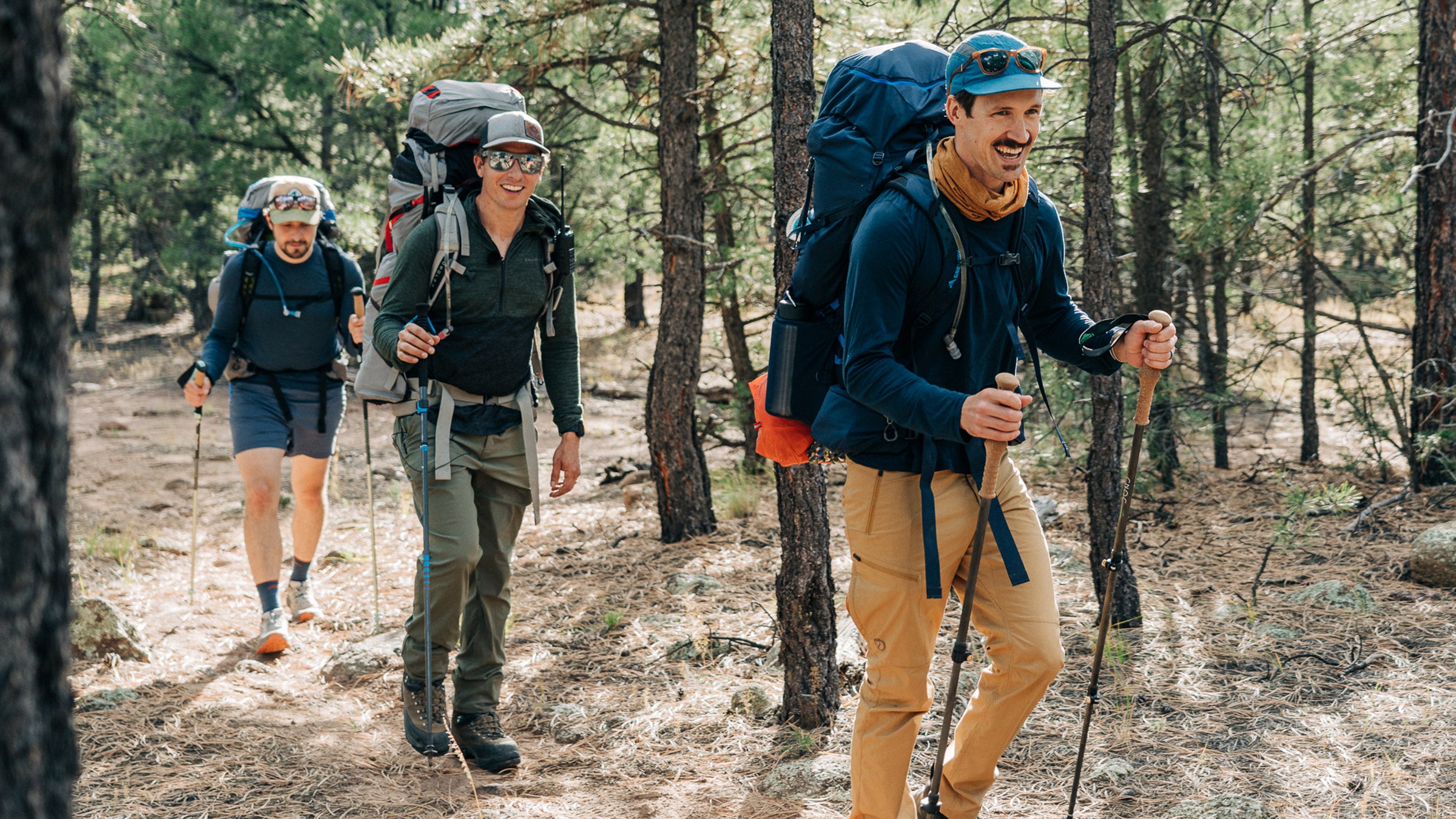
(Photo: Evan Green)
Gone are the days of stiff, scratchy tech fabrics: Hiking shirts now deliver unprecedented comfort thanks to increasingly soft, sweat-mopping materials that feel good in any weather. We outfitted our tester team with the latest shirts and jackets as well as trusted favorites from past years to find the best performers for hiking and backpacking. Spanning tees, windbreakers, and hoodies, these five earned top scores.
At a Glance
- Best Tee: Patagonia Men’s Capilene Cool Daily Shirt ($45)
- Best Wool Tee: Decathlon Simond Forclaz MT900 Seamless Merino Wool T-shirt ($75)
- Best Wool Hoodie: Ridge Merino Pursuit Ultralight Merino Hoodie ($99)
- Best Sun Protection: Backcountry Hybrid Tahoe Sun Hoodie ($99)
- Best Collared Shirt: Party Shirt International Stretch Tech ($55)
- Other Products We Tested
- How to Choose Hiking Shirts
- Meet Our Testers
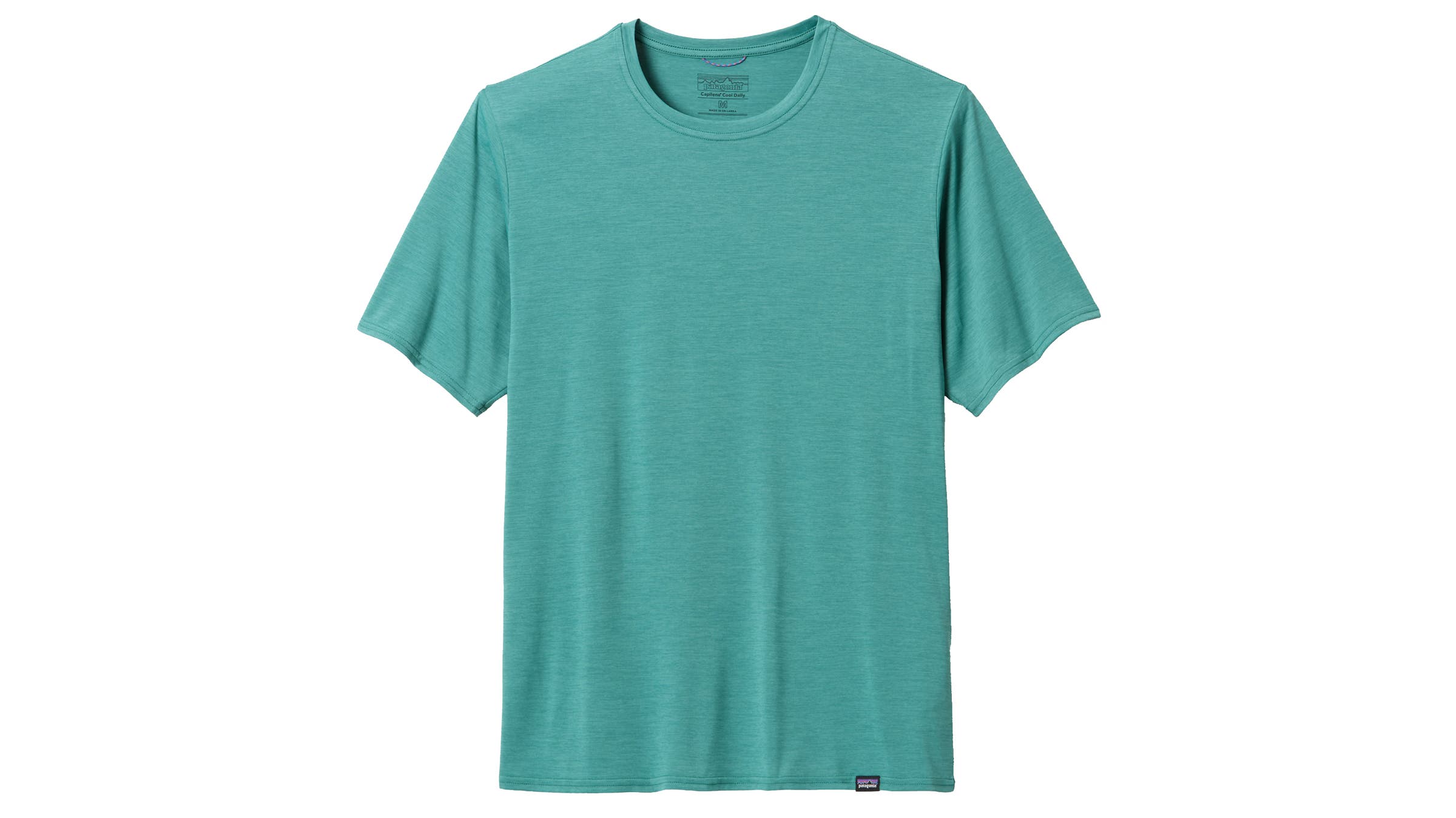
Best Tee
Patagonia Men’s Capilene Cool Daily Shirt
Weight: 4.5 oz.
Sizes: XS-3XL
Pros and Cons
⊕ Soft fabric
⊕ Breathable
⊕ Resists odor
⊗ No UPF rating
After 40 years spent perfecting the basic synthetic tee, Patagonia’s latest Capilene crewneck is just shy of perfect. Exceptionally soft, featherweight polyester fabric (50 to 100 percent recycled depending on style) wicks sweat and dries fast, as you’d expect from any quality synthetic jersey. But its cleverly-knitted fabric out-stretches most competitors and is far less stinky: Thanks to a mint-based fabric finish, this shirt stayed odor-free throughout a seven-day backpacking trip in Idaho’s Sawtooth National Forest. “It’s very light and breathable, with no limitations on movement,” our tester reports. That made it his favorite for all warm-weather sports, from hiking and rock climbing to running and strength training. This shirt never chafed or crusted over with sweat. But breathability does come with a tradeoff in sun protection: Patagonia makes no promises about the fabric’s UPF, although testers felt it fared better than a standard cotton tee.
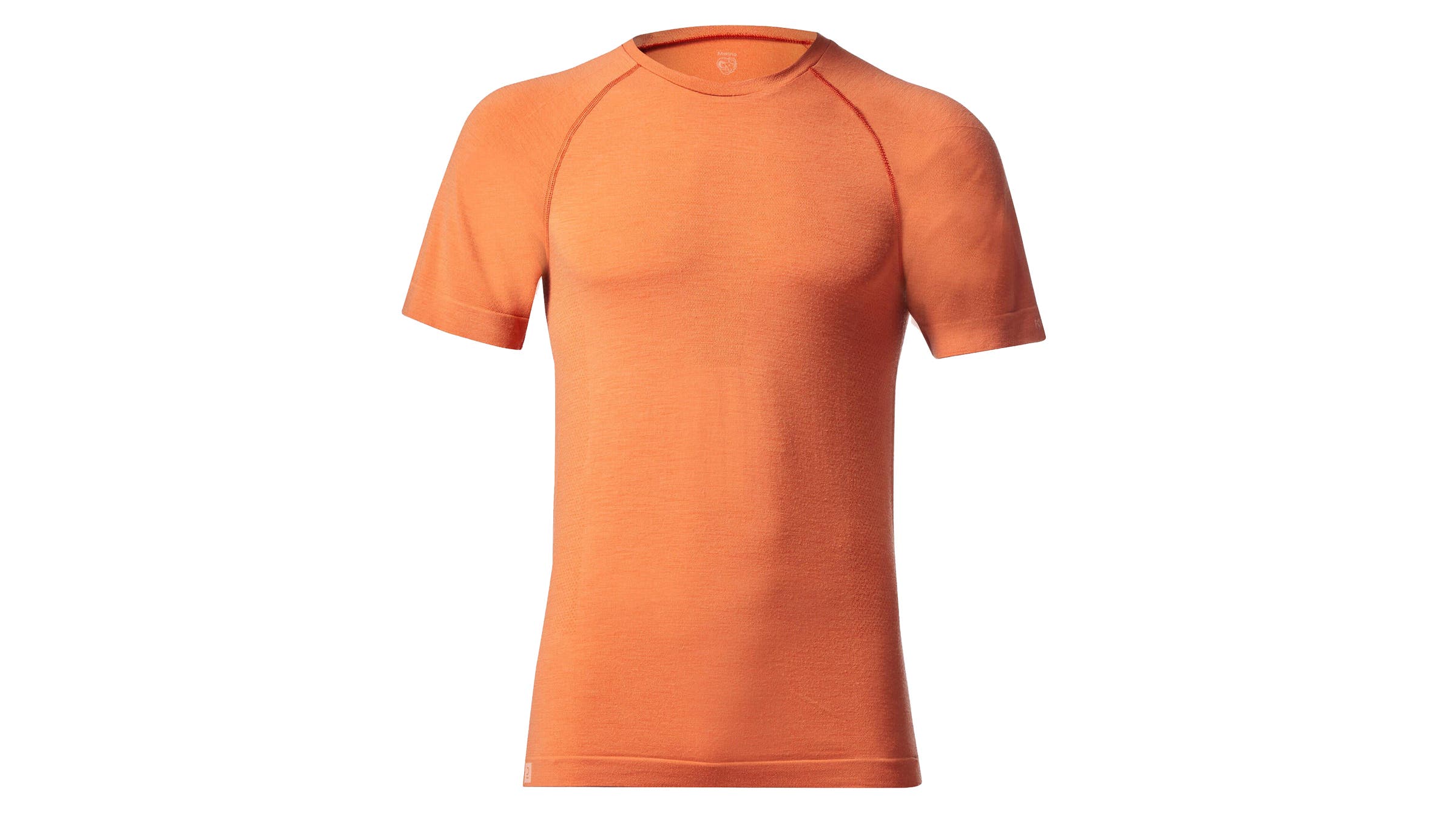
Best Wool Tee
Decathlon Simond Forclaz MT900 Seamless Merino Wool T-shirt
Weight: 5.5 oz.
Sizes: S-2XL
Pros and Cons
⊕ Good durability
⊕ Very comfortable
⊕ Stink-free
⊗ One color only
This merino-blend tee dries faster and resists abrasion better than other woolies we tested. Its extra-fine merino (17.2 microns) is sheathed in nylon to improve durability—after multiple wearings beneath a backpack, our tester noticed only minimal pilling on one seam. A smidge (6 percent) of elastane improves stretch. But its standout quality is breathability: Zoned but seamless construction means that high-output areas under the arms, at the center of the chest, and across the back have a looser thread count for better airflow, while high-wear areas are more tightly knit for durability. “Doing 7,000 feet of gain and loss in 16 miles should have had me drenched, but I wasn’t,” says our veteran tester of hiking in New Hampshire’s White Mountains, adding that the fabric dried within a minute of summitting. Even with elastane and nylon, the 65 percent wool content squelches stink. “I wore this shirt for four days straight and my wife told me I stunk, but my shirt didn’t,” our tester reports. As for downsides? The body-hugging cut limits versatility for casual wear, and the only color offered is orange.
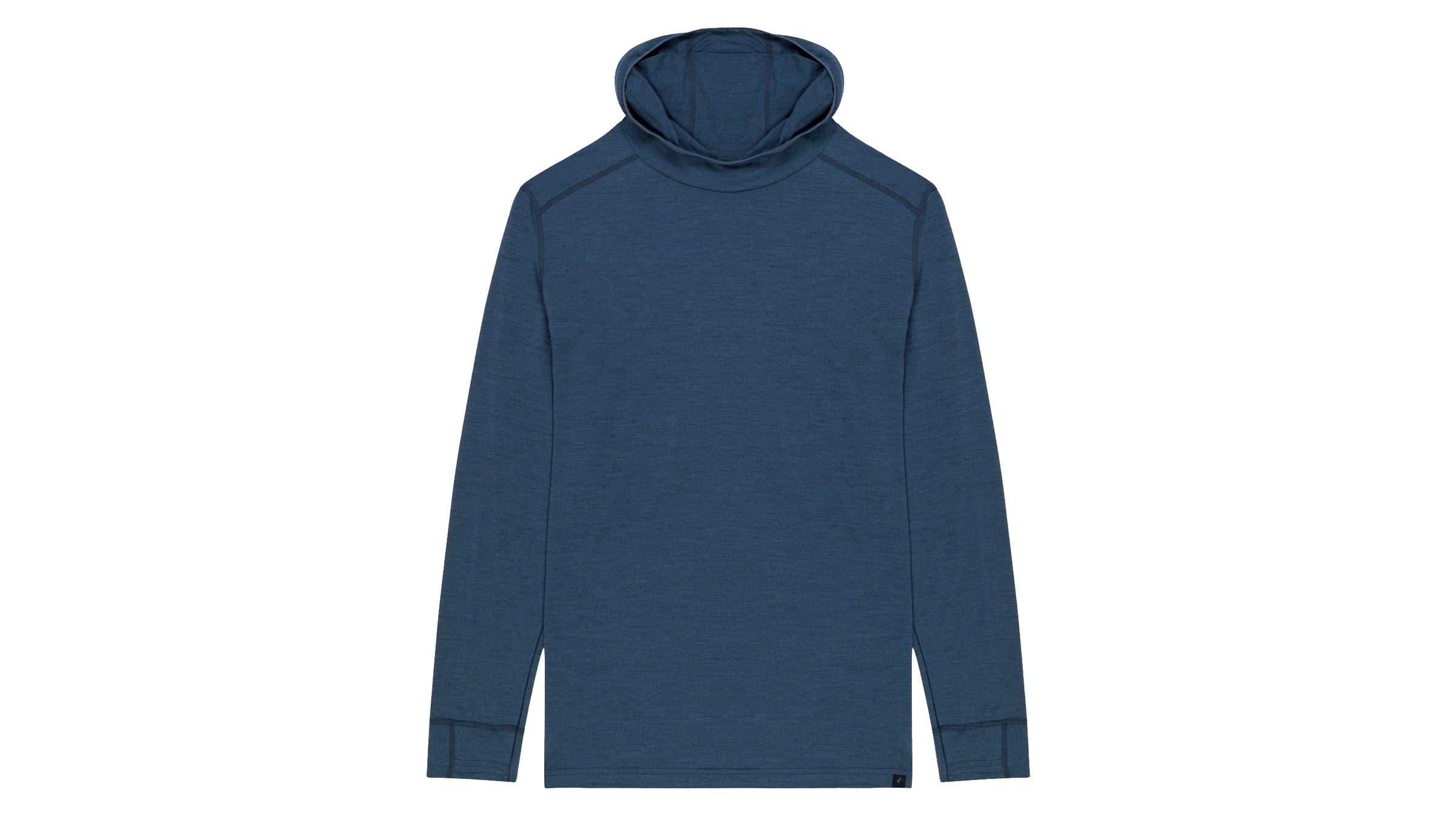
Best Wool Hoodie
Ridge Merino Pursuit Ultralight Merino Hoodie
Weight: 6.5 oz. (M)
Sizes: S-XXL
Pros and Cons
⊕ Durable
⊕ Excellent temperature regulation
⊕ Snug hood
⊗ Too warm for the hottest hikes
This featherweight hoodie is thin enough to wear in mid-70s temps without overheating yet tough enough for extended abuse on trail. Its secret weapon is Japanese in-spiral spinning, which merges polyester filaments (16 percent) into the merino yarn to create a nearly-sheer fabric that’s faster-drying and more abrasion resistant than pure wool. The friction of backpack straps produced no pilling, yet this top is as soft as other premium merino blends. And when our lead tester plunged their arm into a stream during a fumbled crossing, the material dried within 40 minutes.
The mostly merino content smells fresh for days, gusseted underarms allow for unconstricted movement, and the snug hood and collar buffered summit gusts on Colorado’s 12,323-foot Flat Top Mountain. Yet thanks to its refreshingly low-tech looks, this topper proved just as serviceable while road-tripping and pub-crawling.
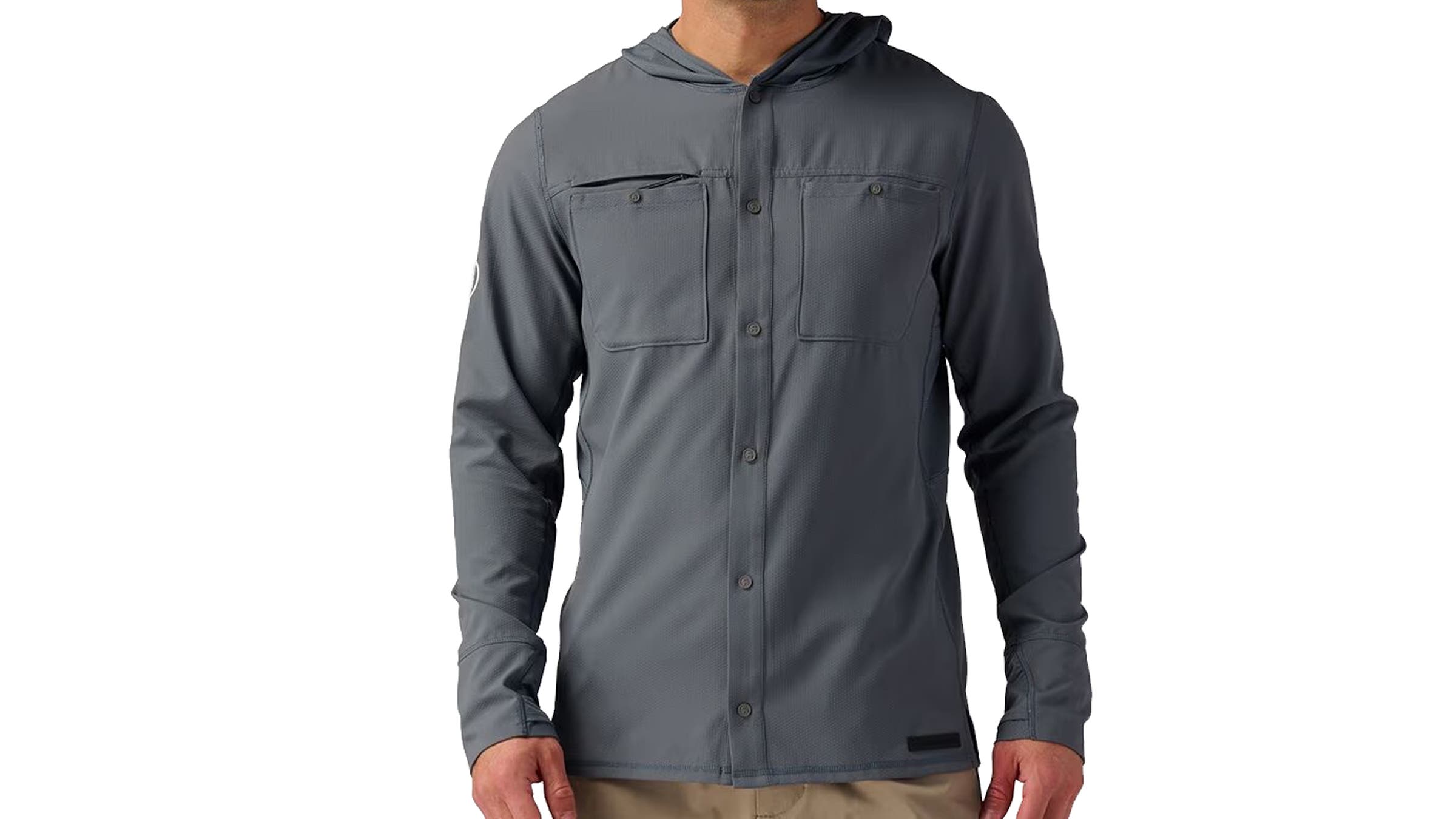
Best Sun Protection
Backcountry Hybrid Tahoe Sun Hoodie
Weight: 7.2 oz.
Sizes: S-XXL
Pros and Cons
⊕ UPF 50+ fabric
⊕ Good ventilation
⊗ Not durable
Marrying the ventilation of a button-down with the protection of a hoodie, this stretchy sun shirt became our Tahoe tester’s new favorite. “It’s perfect for me as a trail crew worker,” he says. The hybrid proved to be cooler and airier than most hoodies (it has vents across the upper back) while effectively shielding him from high-altitude sun and heat. “It’s nice to have the option of unbuttoning the shirt,” he adds. Thumb holes improved coverage across the hands, and the hood’s tailored fit reduced bulky sagging at the neck. Snap-top chest pockets, one of which has a zippered pocket behind it, were roomy enough for a phone or a set of car keys. The moisture-wicking, soft polyester dobby (with polyester/spandex blend panels) feels great against the skin and mops sweat but was roughed-up by pack straps and pilled after just one outing.
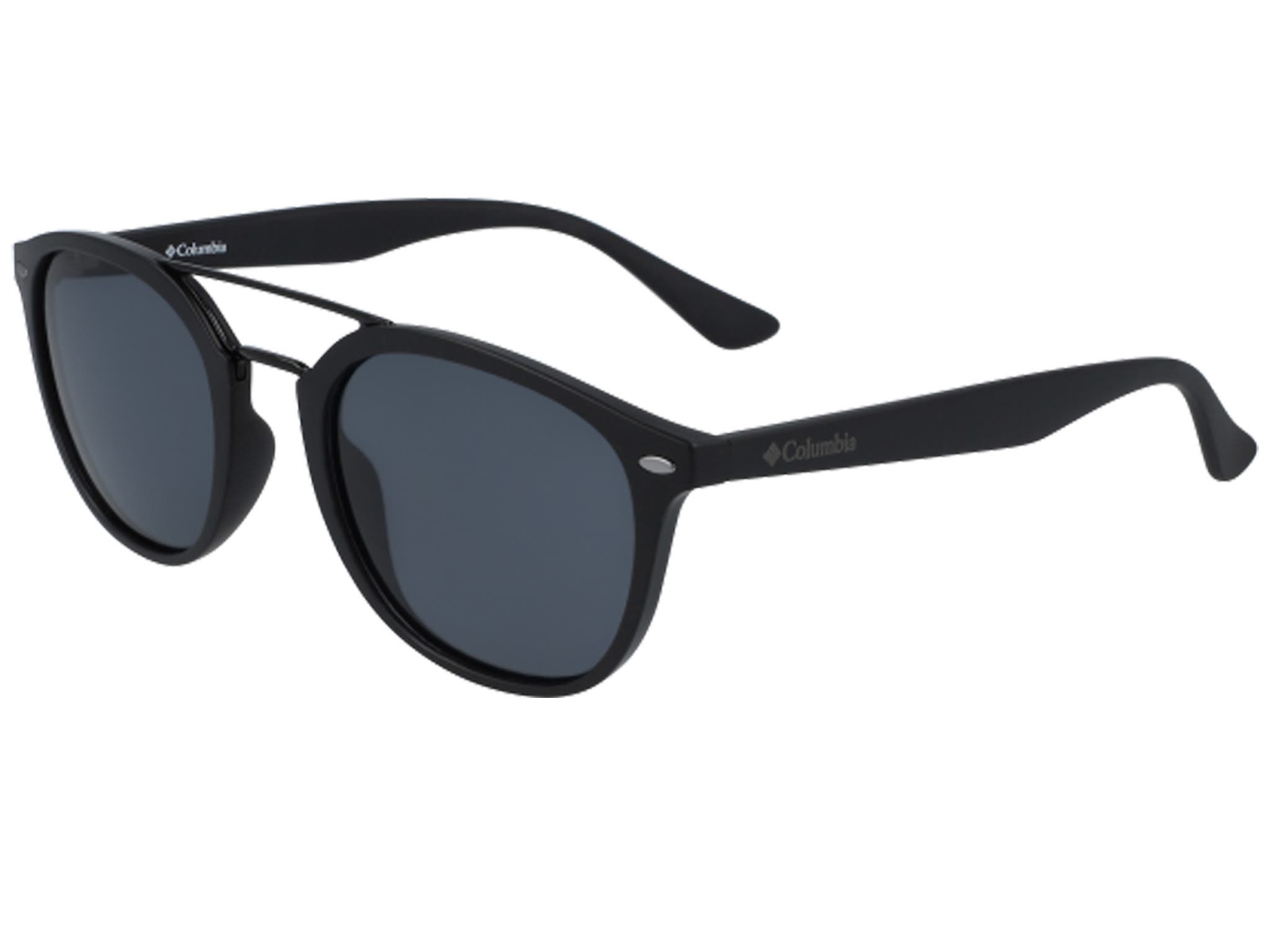
Paid Advertisement by Columbia Sportswear
Columbia Firecamp Polarized Sunglasses ($65)
Looking for your go-to pair of sunnies? Columbia’s Firecamp Polarized Sunglasses are engineered to keep you protected no matter where the day takes you. The metal, double-bar bridge gives these sunglasses a sleek, modern look, while the lightweight design provides all-day comfort. And polarized lenses help reduce glare and eyestrain so you can focus on what matters most.
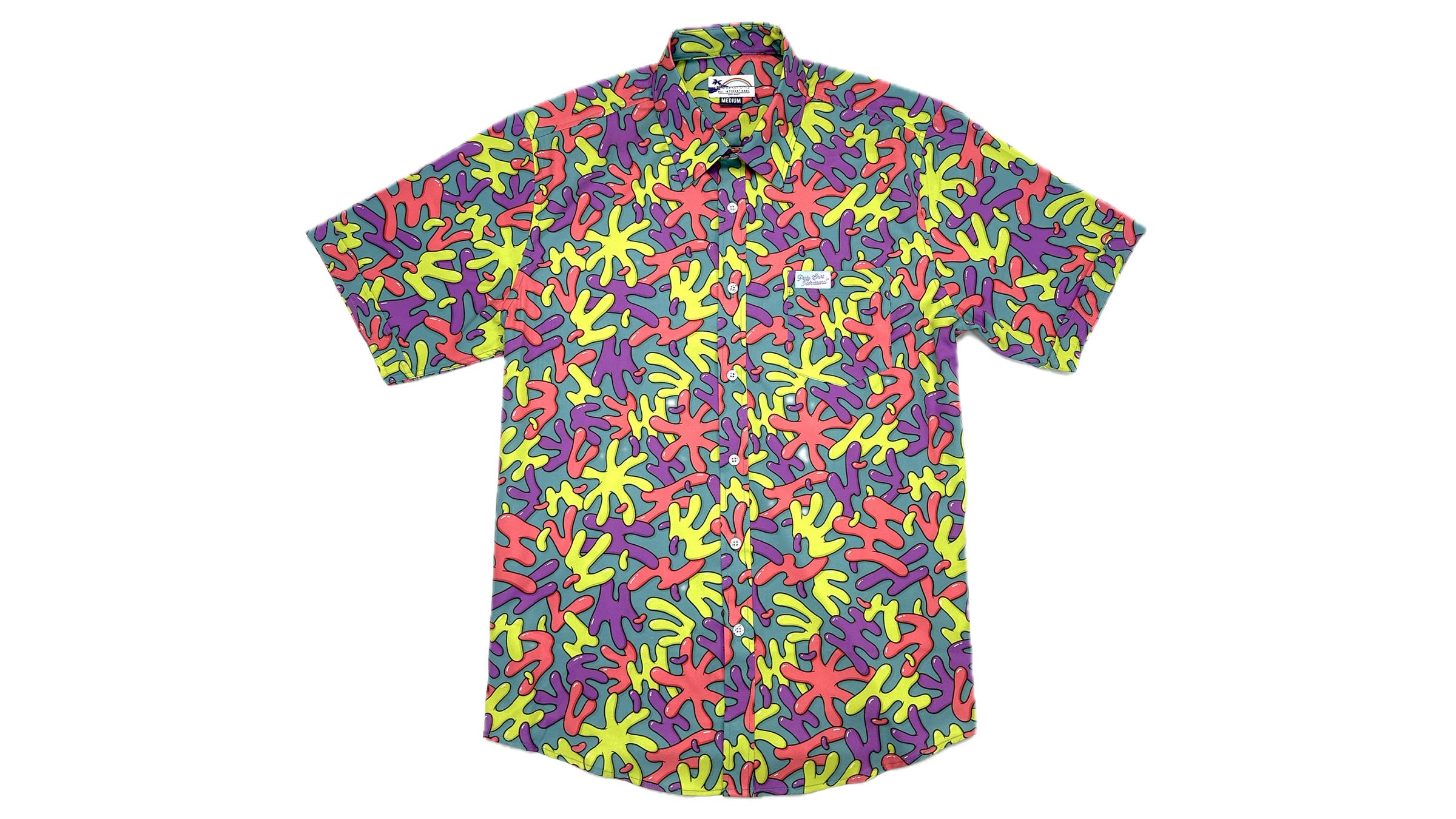
Best Collared Shirt
Party Shirt International Stretch Tech
Weight: 6.3 oz.
Sizes: XS-XXXL
Pros and Cons
⊕ Jazzy patterning
⊕ Moisture wicking
⊗ No UPF rating
Outrageously patterned like your dad’s favorite Hawaiian button-down, Party Shirt’s technical tops are a joy to wear in an industry focused on hunter orange and forest green. Its stretchy blend of recycled polyester and 8 percent spandex earned props for breathability and wicking speed during a six-mile hike near Steamboat Springs in mid-80s temps. “The fabric totally hid my sweat,” raved one tester. The extra-soft fabric feels good while in motion—and while relaxing afterward—and the long cut keeps the shirttails secure beneath a pack’s hipbelt. Along with spandex, the four-way stretch weave allows for fluid disc golf throws and trekking pole plants. Testers experienced no pilling after wearing it with a pack. Downsides? The small, open-topped chest pocket holds little more than a mini-golf pencil, odor control is poor, and the fabric promises no UPF protection, although it was a step up from a standard cotton tee. But if you want a collared shirt that brings some pizazz to your technical trail ensemble, this is your ticket.
Other Products We Tested
- Forloh Insect Shield SolAir Hooded Long Sleeve Shirt ($109): Though it lacks the venting offered by the Hybrid Tahoe Sun Hoody, this UPF 50+ sun shirt won our silver medal for its lightweight, cool-feeling fabric that stays fresh-smelling and repels biting insects—something that testers in mosquito and tick country appreciated.
- Outdoor Research Astroman Air Short Sleeve Shirt ($99): Hikers in various hot and humid mid-Atlantic states established this collared shirt as ideal for the steamiest conditions: The stretchy fabric (85 percent recycled nylon and spandex) doesn’t pill beneath pack straps and UPF 30-50+ protects skin.
- Smartwool Active Ultralite Short Sleeve ($65): Breezy fabric made of merino wool and Tencel (47 percent) wicked sweat and felt comfy while hiking in temps below 83 degrees, but the itch factor exceeded other wool tees tested.
How to Choose Hiking Shirts
Fit is paramount. Apparel that doesn’t suit your shape can prove uncomfortable on the trail. It’s also likely to languish in your closet because you won’t feel excited about wearing it. Once you’ve found apparel that fits, consider its fabric content: Different fibers deliver various performance benefits and drawbacks:
- Nylon resists abrasion and dries fast, but can feel rough against the skin.
- Polyester is softer to the touch, but sometimes less durable. Unless treated with an odor-resistant finish, it also gets stinky after contact with body sweat and bacteria.
- Elastane (sometimes branded as spandex) provides stretch but slows the fabric’s dry time.
- Merino wool is breathable, temperature-regulating (it cools you in warm weather and insulates you in chilly conditions) and naturally odor-resistant, but can be less durable than synthetics.
Finally, consider how garment features may dovetail with the rest of your hiking kit. Is the shirt’s hem long enough to stay tucked beneath the buckles of a waist pack? Are the chest pockets accessible underneath pack straps? By forecasting how your apparel will integrate into your ensemble, you can avoid buying pieces that disappoint you while hiking.
How We Test
- Number of testers: 9
- Number of products tested: 32
- Distance covered: 400+ miles
- Hottest Temperature: 110 degrees
First, we recruit a tester team that represents the diversity of the recreating public. Some live in the muggy mountains of the mid-Atlantic and New England states; others hike and explore Alaskan wilds; still more reside in the high and dry climates of the Rocky Mountains and California Sierra. Our tester lineup spans a variety of body types and shapes, from lean (short and tall) to wide. All are hikers, but their in-field testing also includes trail running, disc golfing, hunting, fishing, rafting, and backpacking with kids.
Meet Our Testers
Kelly Bastone is our hiking apparel category manager. Recently relocated from Steamboat Springs, Colorado to Yarmouth, Maine, she spends her post-deadline time hunting for woodland mushrooms. Other testers include Bruce Etter, a two-time AT thru hiker who works and hikes in New Hampshire’s White Mountains; Filip “Fil” Grgic, a trail crew lead in Truckee, California; and TC Tolbert, a trans man (FTM) who lives and hikes in Tucson, Arizona.